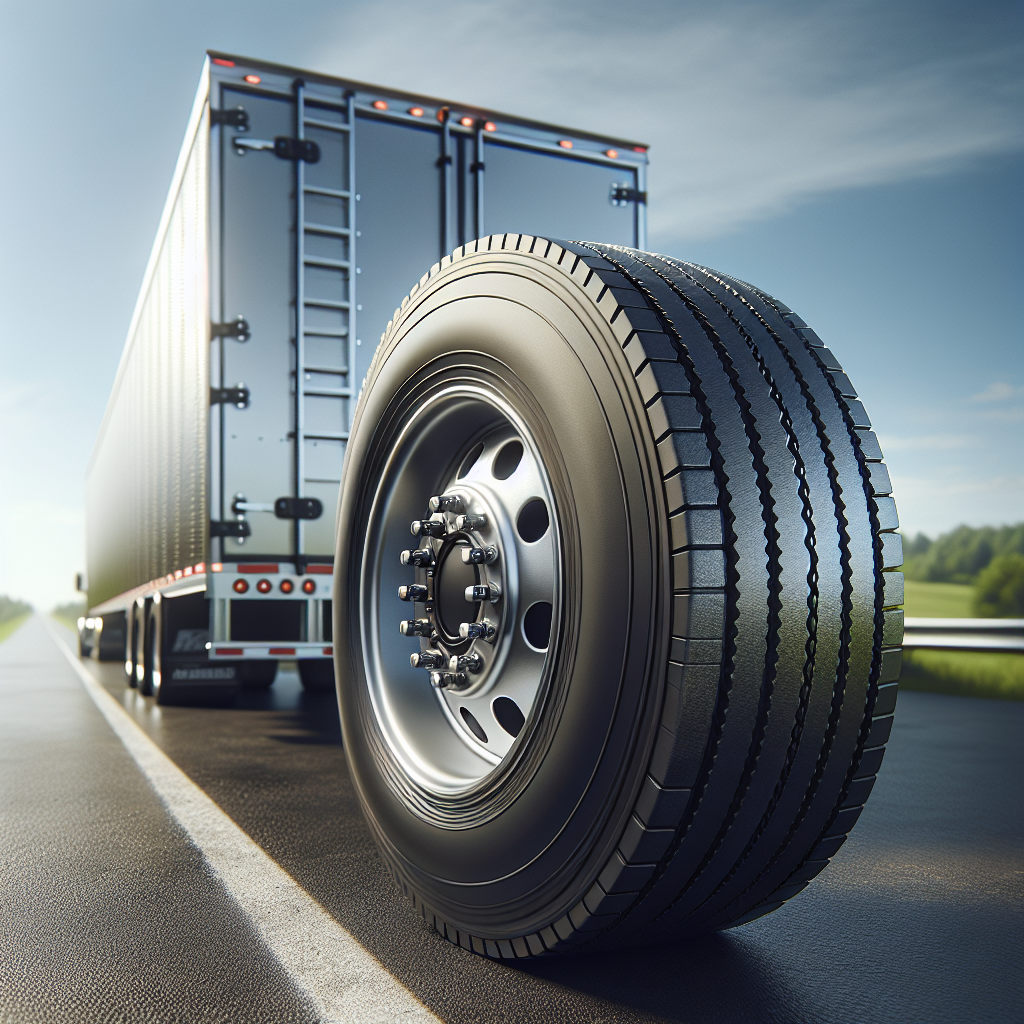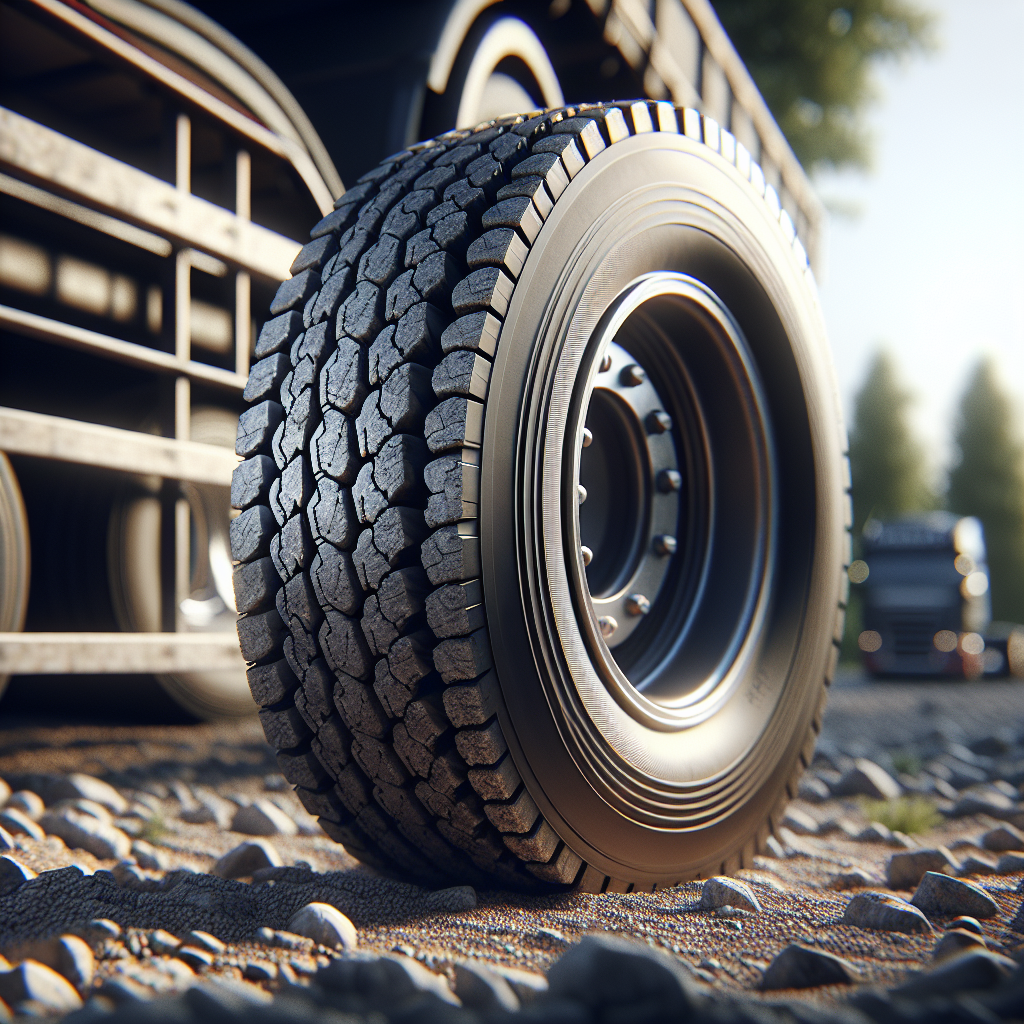Regularly checking your trailer tires is crucial for ensuring both safety and performance during travels. Many trailer owners underestimate the significance of tire maintenance, leading to potential hazards on the road. Here are some key reasons why frequent tire inspections should be a priority:
- Preventing Blowouts: Regular checks help identify wear and tear, ensuring that tires are in good condition to prevent blowouts, which can lead to dangerous accidents.
- Enhancing Fuel Efficiency: Properly inflated tires reduce rolling resistance, consequently improving fuel efficiency and saving you money on gas.
- Extending Tire Life: By monitoring tire health and addressing issues promptly, you can extend the overall lifespan of your tires, maximizing your investment.
- Improving Handling: Well-maintained tires provide better traction and handling, especially in challenging weather conditions, ensuring a smoother ride.
Moreover, neglecting tire maintenance can lead to costly repairs and downtime. Regular checks allow you to spot issues like uneven wear patterns or low tread depth early, making it easier to take corrective measures before a minor problem escalates.
Tow with peace of mind, knowing that trailerwatchdog is standing guard.
Visual Inspection of Trailer Tires

Conducting a visual inspection of your trailer tires is a simple yet effective way to ensure their safety and performance. This step should be part of your regular maintenance routine. Here’s how to effectively carry out a visual inspection:
- Check for Cracks and Bulges: Examine the sidewalls and treads for any signs of cracks, bulges, or blisters. These imperfections can indicate potential tire failure.
- Look for Uneven Wear: Inspect the tire tread for uneven wear patterns. This could be a sign of misalignment or improper inflation, which can lead to reduced tire life.
- Tread Depth: Ensure that the tread depth is adequate. Use the penny test: insert a penny into the tread; if you can see all of Lincoln's head, it’s time to replace the tire.
- Check Valve Stems: Inspect the valve stems for cracks or damage, as they can lead to air leaks and should be replaced if necessary.
In addition to these checks, make sure to clean any debris from the tires and check for any foreign objects such as nails or stones embedded in the tread. These objects can cause punctures and lead to slow leaks, compromising the tire's integrity.
By performing a thorough visual inspection regularly, you can catch potential problems early and maintain the reliability of your trailer on the road.
Measuring Tire Pressure for Safety

Maintaining the correct tire pressure is crucial for the safety and performance of your trailer. Under-inflated or over-inflated tires can lead to increased wear, reduced fuel efficiency, and even tire blowouts. Here’s how to accurately measure tire pressure:
- Use a Reliable Tire Pressure Gauge: Invest in a quality tire pressure gauge that provides accurate readings. Digital gauges are often more precise than manual ones, but both can be effective.
- Know the Recommended Pressure: Always refer to the trailer manufacturer's guidelines for the correct tire pressure. This information can typically be found on a sticker inside the trailer or in the owner’s manual.
- Check When Tires are Cold: For the most accurate reading, measure tire pressure when the tires are cold, ideally before you have driven more than a mile or two. Heat generated from driving can increase tire pressure readings.
- Remove Valve Caps and Press the Gauge: Remove the valve cap from the tire, press the gauge onto the valve stem firmly, and take the reading. Ensure that there is no hissing sound, which indicates air escaping.
- Adjust as Necessary: If the pressure is too low, inflate the tire to the recommended level. If it’s too high, release some air until it reaches the appropriate pressure.
Regularly checking and maintaining your tire pressure can significantly enhance your trailer’s performance and safety on the road. It’s an essential part of trailer maintenance that should not be overlooked.
Assessing Tread Depth for Performance

The tread depth of your trailer tires plays a vital role in both performance and safety. Adequate tread depth contributes to better traction, handling, and overall stability while towing. Here are some effective methods to assess tread depth:
- The Penny Test: A simple and effective way to check tread depth is by using a penny. Insert the penny into the tread grooves with Lincoln's head facing down. If you can see all of Lincoln’s head, it's time to replace the tire.
- The Tread Depth Gauge: For more precise measurement, consider using a tread depth gauge. This tool provides an exact measurement of the remaining tread depth in millimeters or inches, allowing for better assessment.
- Visual Inspection: Regularly inspect the tread for signs of uneven wear, cracks, or foreign objects lodged in the grooves. Look for wear indicators, which are small raised bars in the grooves that signal when the tread is worn down.
- Check Across the Width: Tread depth should be measured at multiple points across the width of the tire. Uneven wear can indicate issues such as misalignment or improper inflation.
Maintaining an adequate tread depth is essential for ensuring optimal performance and safety while towing. By regularly assessing your tire tread, you can prevent potential issues and enhance your trailer's stability on the road.
Identifying Signs of Tire Damage
Regularly inspecting your trailer tires for damage is crucial to ensure a safe towing experience. Identifying signs of tire damage early can help prevent catastrophic failures. Here are some common indicators to watch for:
- Cuts and Scrapes: Examine the sidewalls and tread for any visible cuts, scrapes, or gouges. These imperfections can compromise the tire's integrity and may lead to blowouts.
- Blisters and Bubbles: Look for blisters or bubbles on the tire's surface. These are signs of a weak spot that could indicate internal damage, and they should be addressed immediately.
- Uneven Wear Patterns: Inspect for unusual wear patterns, such as excessive wear on one side or in the center. This can indicate issues like misalignment, improper inflation, or suspension problems.
- Cracking: Check for cracks in the rubber, especially around the sidewalls. Cracking can occur due to age or exposure to UV rays and can lead to tire failure.
- Low Air Pressure: Tires that are frequently low on air may develop damage over time. Always check your tire pressure before towing to prevent stress on the tire structure.
By keeping an eye out for these signs of tire damage, you can take proactive steps to maintain your tires and ensure safe towing. If you notice any of these issues, it’s advisable to consult a professional for further inspection and potential replacement.
Maintaining Trailer Tires for Longevity

Proper maintenance is essential to ensure the longevity and performance of your trailer tires. By following these best practices, you can extend the life of your tires and enhance your overall safety on the road:
- Regular Inspections: Conduct routine checks on your tires, looking for signs of wear, damage, or irregularities. Early detection of issues can prevent costly replacements and accidents.
- Maintain Proper Inflation: Keeping your tires inflated to the manufacturer's recommended pressure is key. Under-inflated or over-inflated tires can lead to uneven wear and increased risk of blowouts.
- Rotate Tires: Just like with vehicle tires, rotating your trailer tires helps ensure even wear. This is particularly important for trailers that carry heavy loads.
- Check Alignment and Balance: Misaligned or unbalanced tires can lead to uneven wear and handling issues. Regularly checking the alignment and balance can enhance the lifespan of your tires.
- Store Properly: If you're storing your trailer for an extended period, make sure to park it on a flat surface, and consider using tire jacks to relieve pressure on the tires.
By implementing these maintenance tips, you can maximize the lifespan of your trailer tires and ensure safer travels. Tow with peace of mind, knowing that trailerwatchdog is standing guard.








